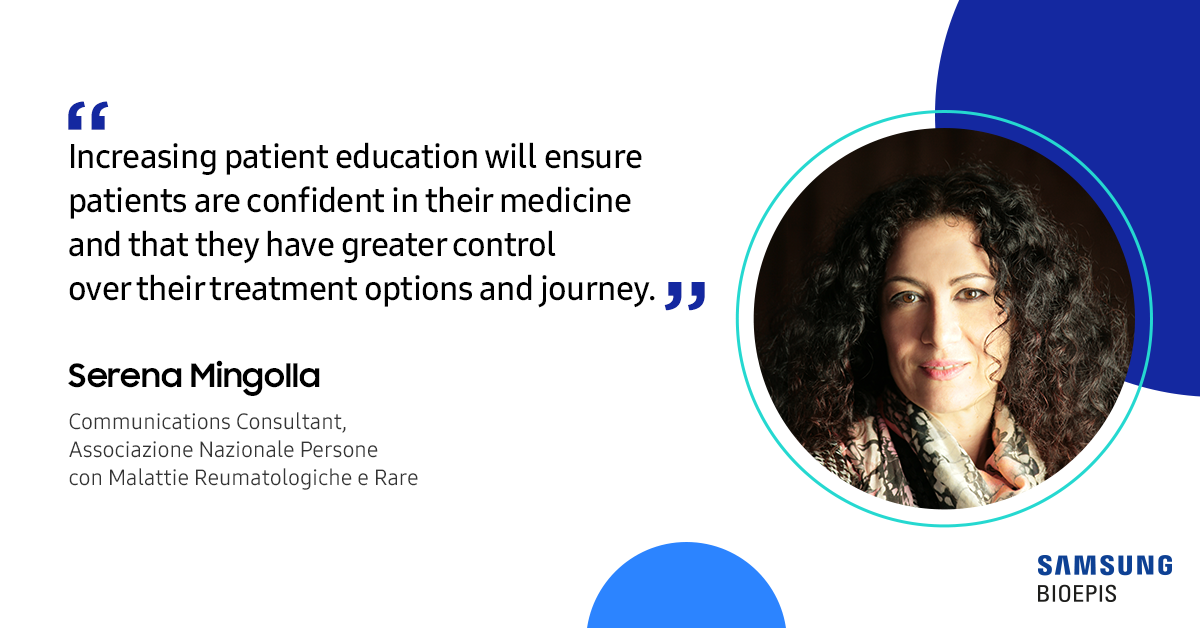Our Stories
Our Stories
31/08/2020
Patient education: How can it support biosimilar adoption?


Patients are more educated about treatments today than ever before. In many circumstances, patients often discuss medications with healthcare professionals before treatment is prescribed and have authority over which therapy they will receive. Therefore, it is important to provide patients and their carers with easily digestible and accessible information to enable these decisions to be made confidently.
Through various education initiatives, such as patient advocacy groups (PAGs) providing workshops for patients in specific disease areas, or online guidelines and animations for disease awareness and treatment information, patients have become more aware of symptoms to look for, and what to expect before, during and after diagnosis and treatment. As biosimilars become more widely adopted patient education is more important than it has ever been; ensuring that patients receive the correct information about biosimilars, what they are and how they are used.
A statement published by the American Society of Clinical Oncology (ASCO) in the Journal of Clinical Oncology suggested that there is a greater need for biosimilar education for prescribers and patients, particularly as more biosimilars come to market in the next several years, and their role in the future care of patients with cancer grows in importance.
ASCO has stated that it will continue to work to provide education, from webcasts and online practice guidelines, to social media updates potentially via ASCO university.1 These resources have the potential to be available for prescribing clinicians to use when speaking to patients, and could help to facilitate dialogue between patients, carers and healthcare professionals (HCPs).
In a recent virtual panel discussion hosted by Samsung Bioepis, Serena Mingolla, Communications Consultant at Associazione Nazionale Persone con Malattie Reumatologiche e Rare APMARR, Italy, highlighted an Italian survey showing that despite 77% of patients being switched from a reference biologic drug to a biosimilar, only 51% had received any explanation for the switch.
“Doctor to patient education and communication is in need of improvement, “Mingolla said. “Time should be allocated for discussion and improvement in doctors’ attitudes towards biosimilars. Increasing patient education will ensure patients are confident in their medicine and that they have greater control over their treatment options and journey.”
Additionally, nurses play integral roles in patient education. They are highly trusted in their role, and often are the first point of contact for a patient. Nurses can influence the adoption of biosimilars through patient education and can impact the future of the field in their expanding roles within health care systems. Due to their regular interactions with patients, through the administration and monitoring of treatments to the time spent with patients, nurses are often the HCPs that patients are most comfortable speaking to. Because of this, ensuring that nurses are properly trained and educated about biosimilars is vital; this information can then be relayed to alleviate patient concerns, and to maximise potential public health benefits.2
Patient education on biosimilars is vital to their success in being implemented as a treatment option in healthcare systems worldwide. Despite the importance of the prescribing clinician, and how they should be the one to explain biosimilars as a treatment option to patients, sometimes, this is not feasible.
Nurses have a huge role to play in supporting patients who may be transitioning from treatment with reference biologics to biosimilars, and their support for patients is vital to the success of biosimilar treatment. Through education, patient confidence and treatment success with biosimilars is more likely to improve, resulting in an increased adoption of biosimilars by healthcare agencies worldwide.
1 Lyman G, et al. ASCO: Biosimilars in oncology. Journal of Clinical Oncology. 2018;36(12)
2 Waller CF, and Friganovic A. Future Oncology. 2020.
2 Waller CF, and Friganovic A. Future Oncology. 2020.




